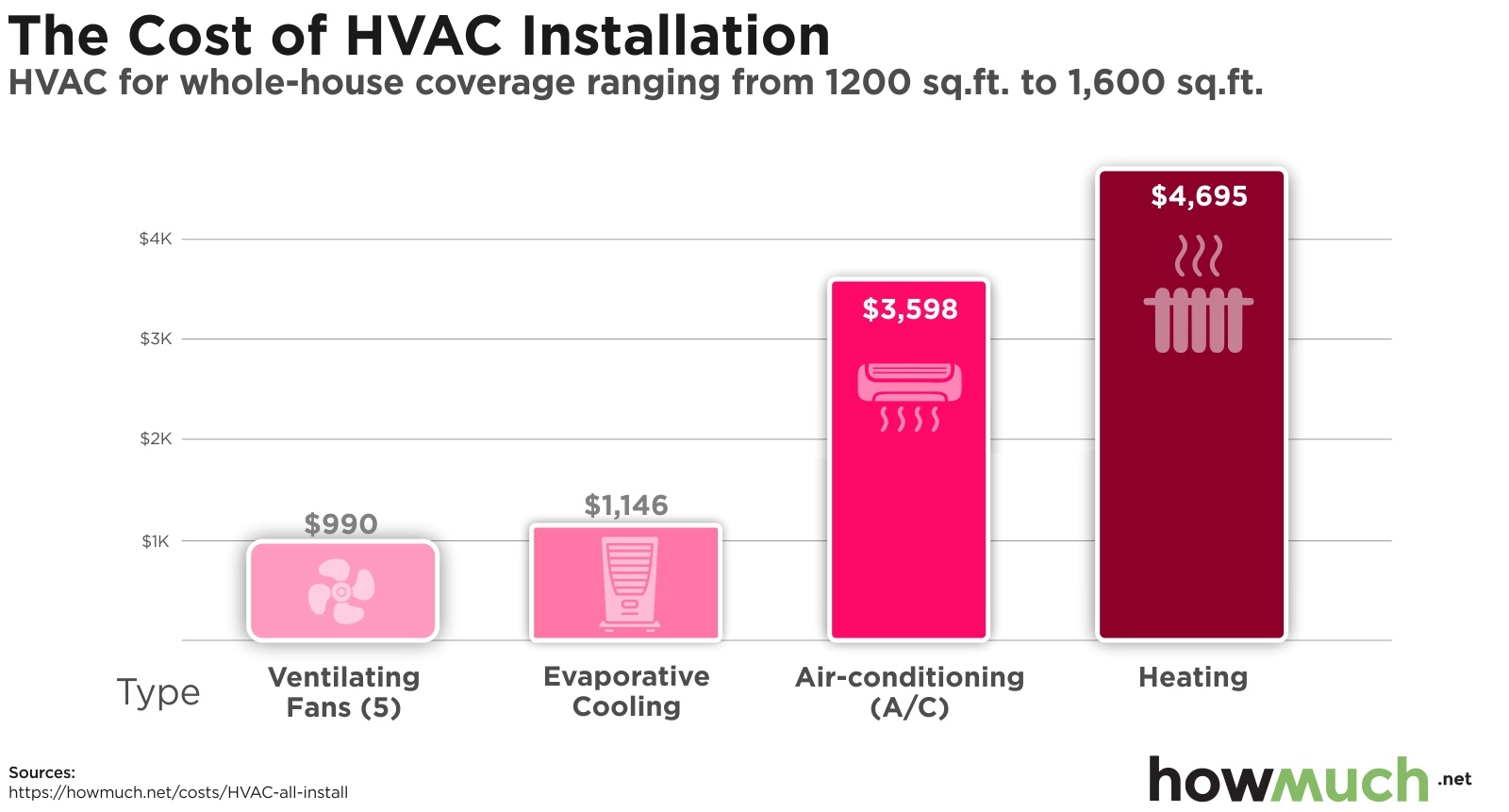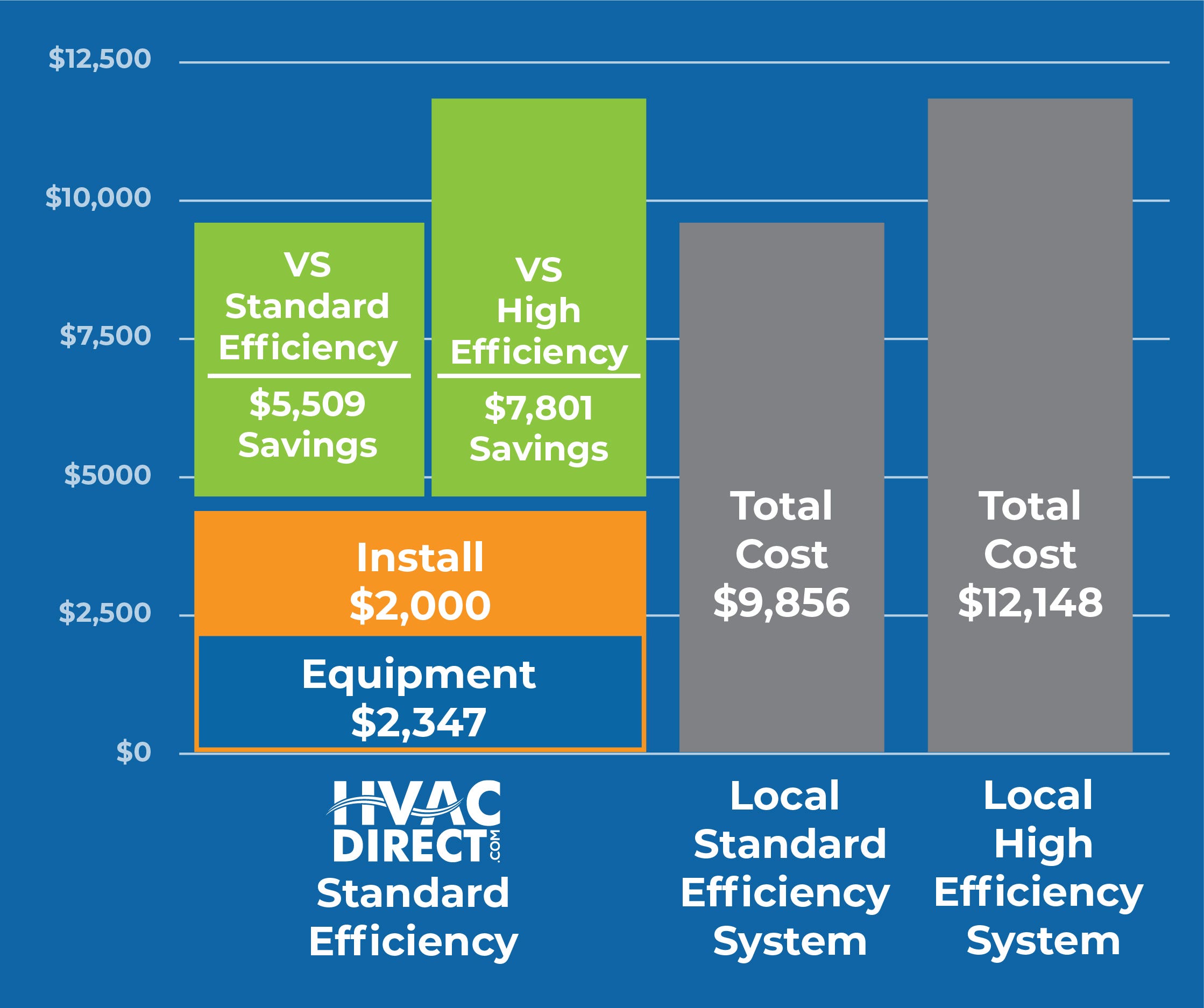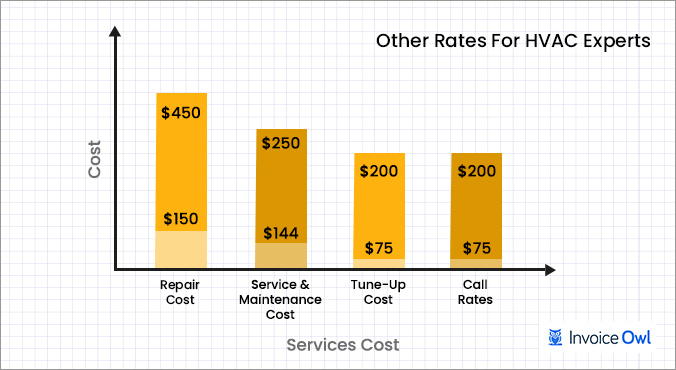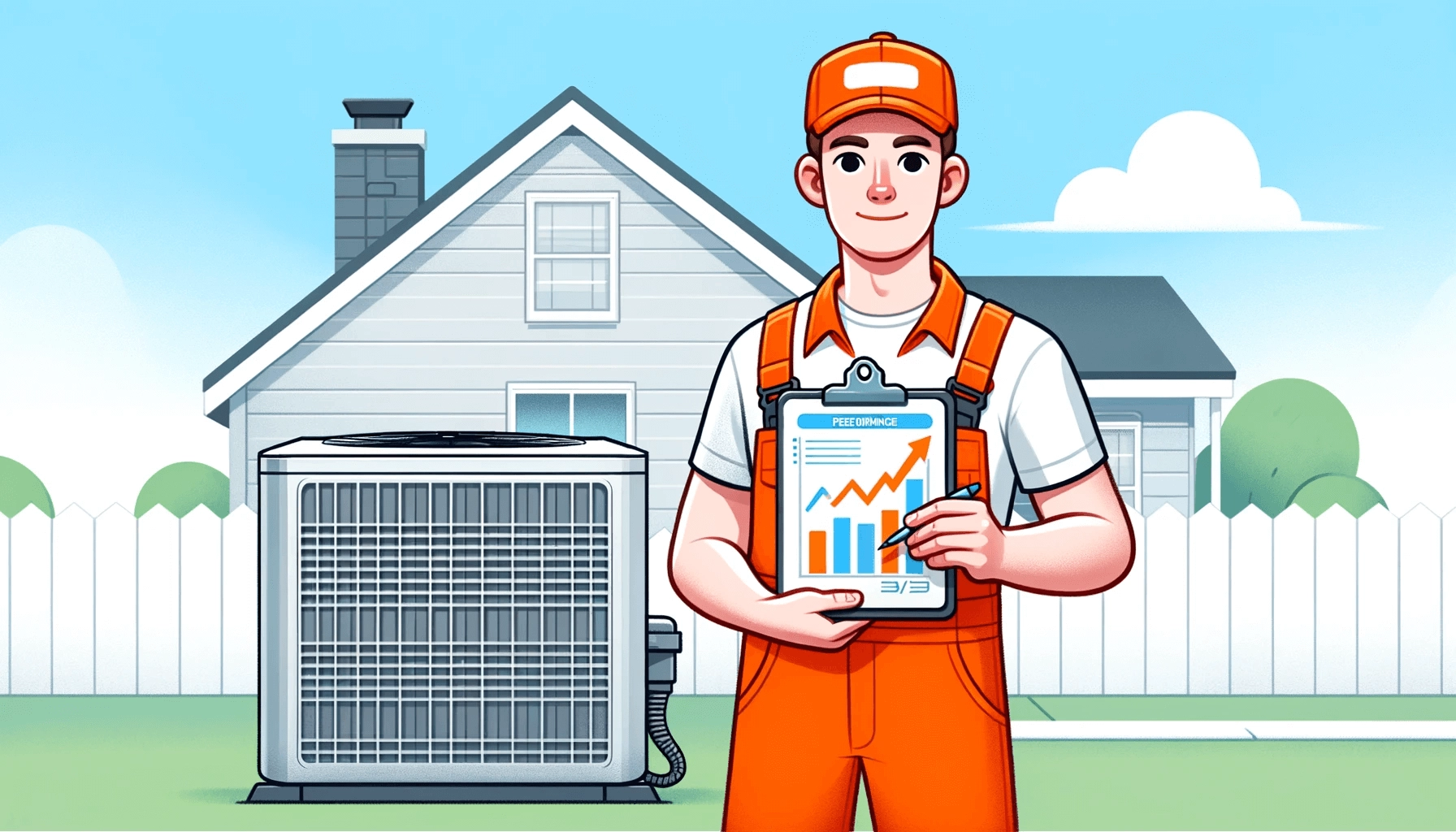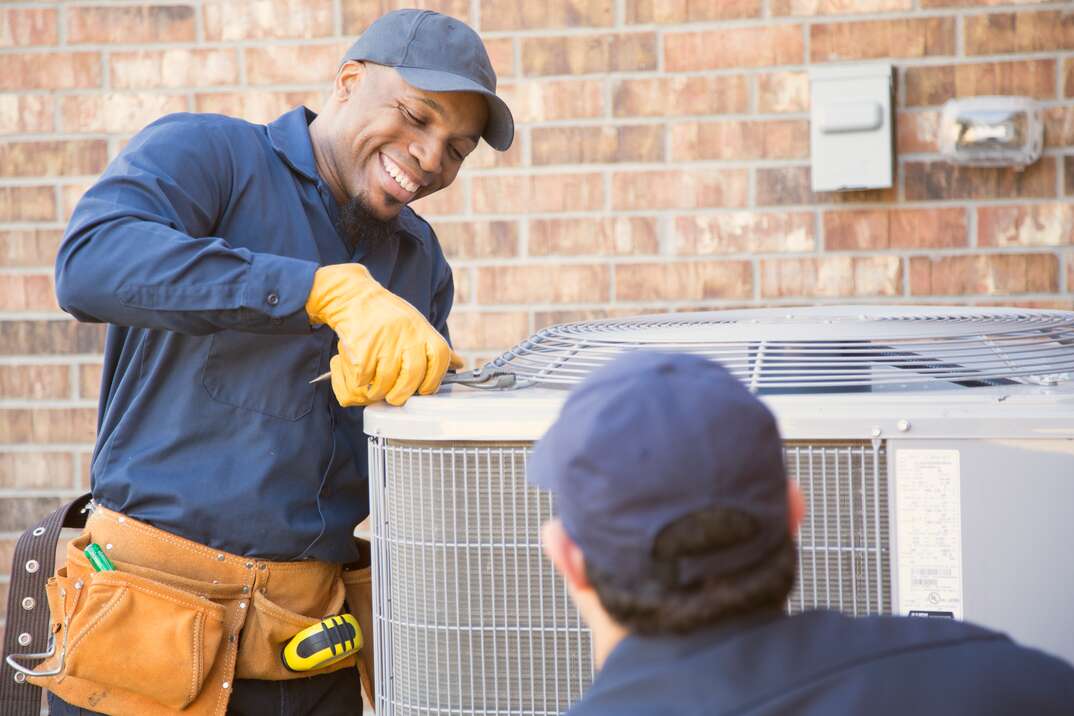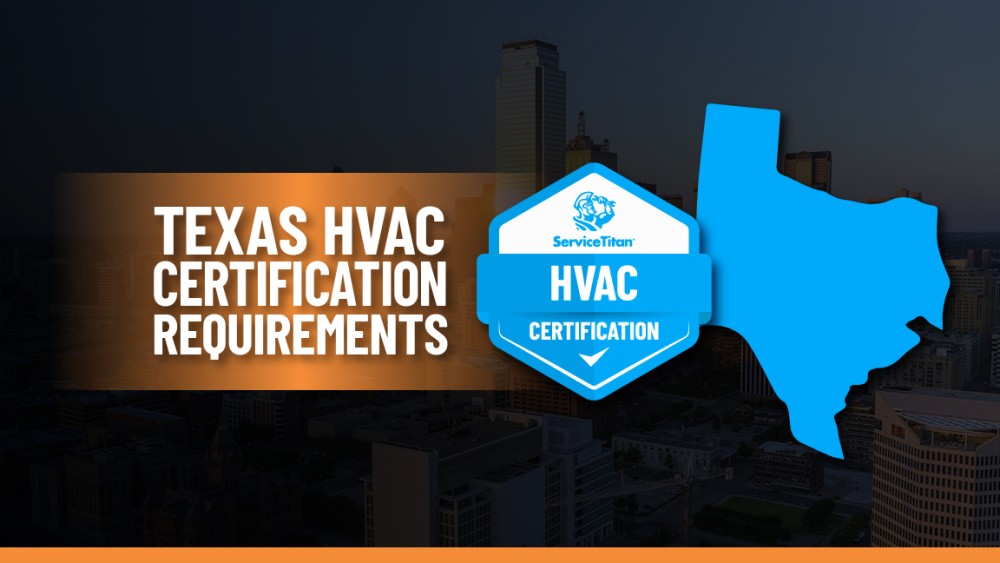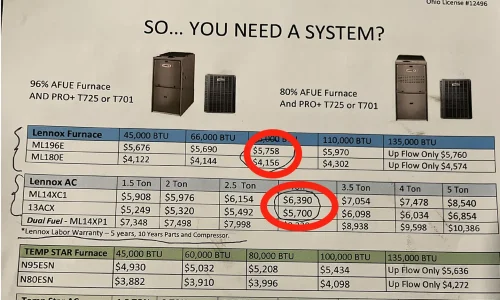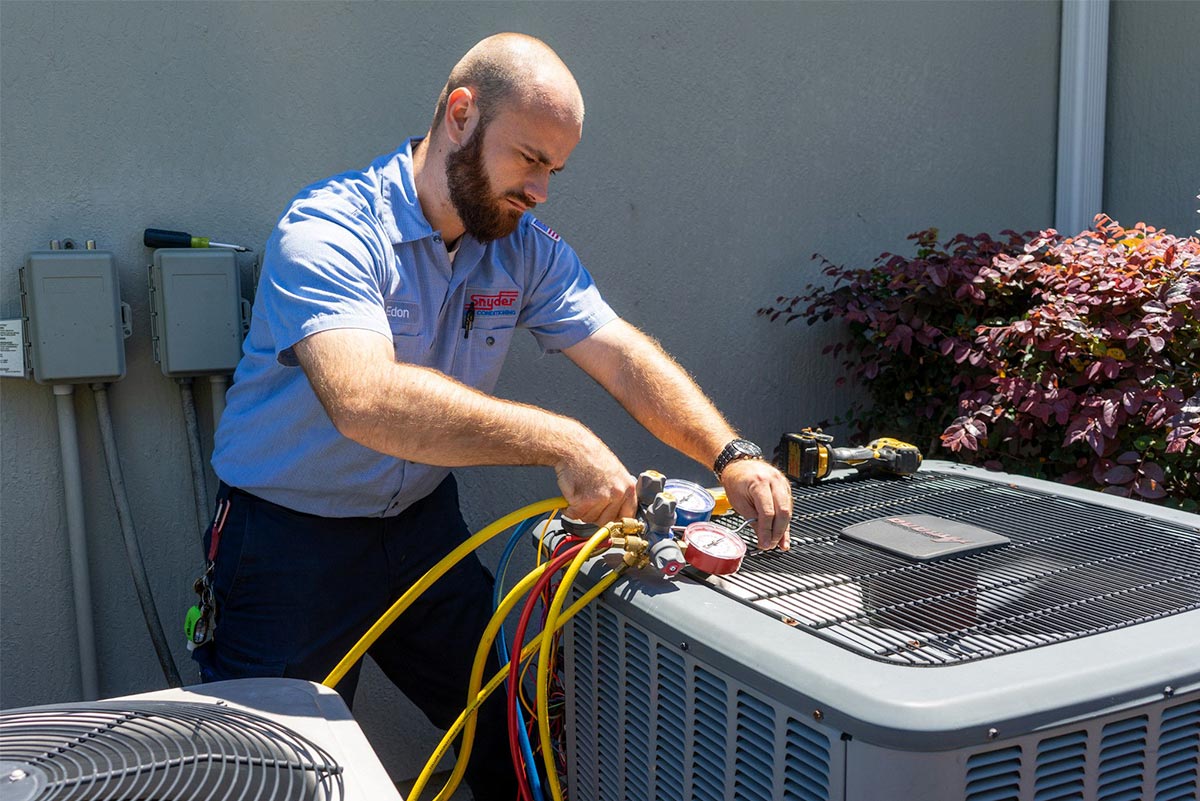How Much Does Hvac Make In Texas
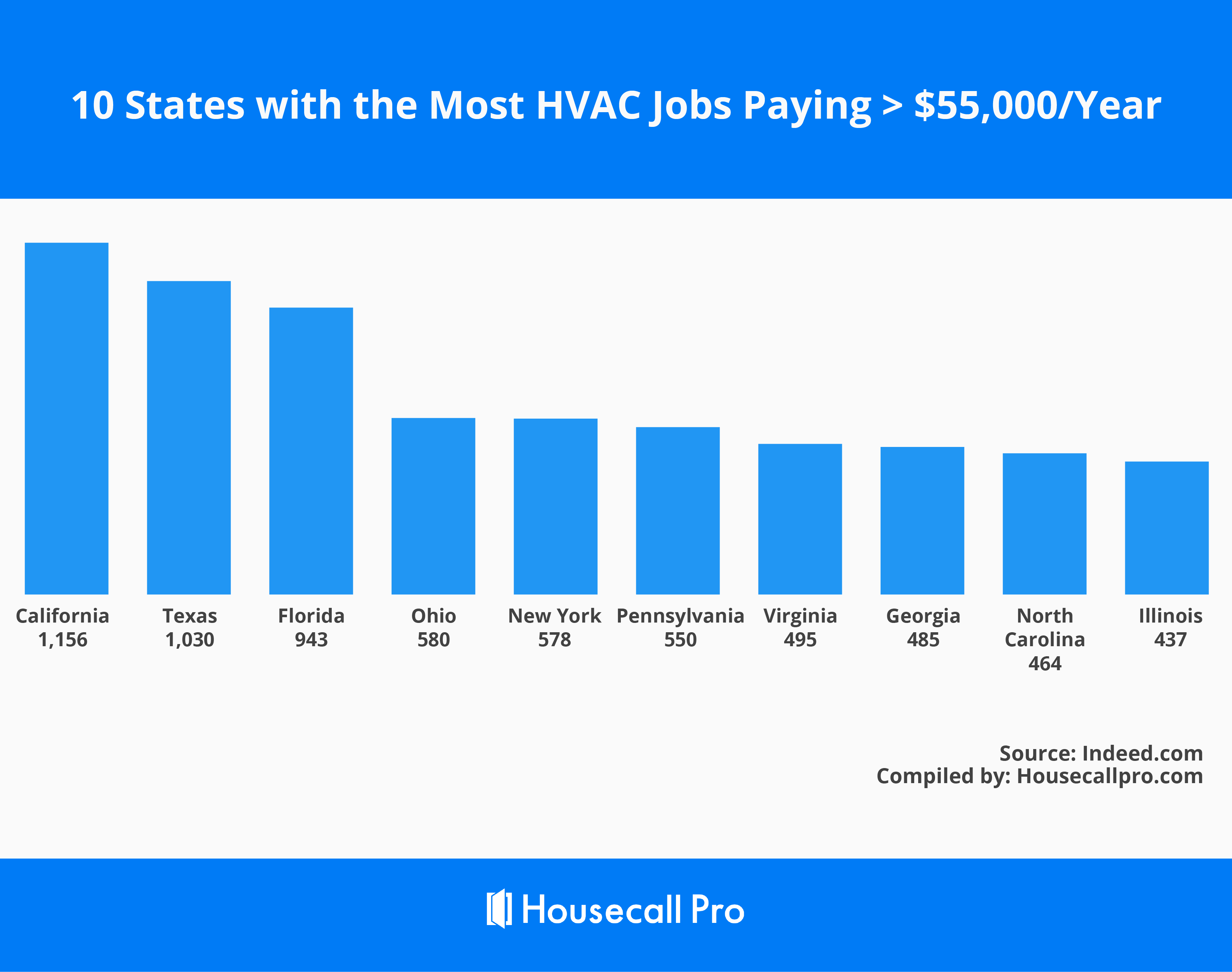
The Texas heat is legendary, and so is the demand for skilled HVAC technicians who keep homes and businesses cool. But beyond the ever-present need, how much can an HVAC professional actually earn in the Lone Star State? The answer is more nuanced than a simple salary figure, influenced by factors ranging from experience and location to certifications and the ever-evolving economic landscape.
This article delves into the earning potential of HVAC professionals in Texas, providing a comprehensive overview based on recent data and industry insights. We'll break down the average salaries, explore the factors that contribute to higher earnings, examine regional variations within the state, and offer a forward-looking perspective on the HVAC job market in Texas.
HVAC Salary Averages in Texas: The Big Picture
According to data from the Bureau of Labor Statistics (BLS), the mean annual wage for HVAC mechanics and installers in Texas was $56,230 as of May 2023. This figure represents the average salary across the state, encompassing technicians with varying levels of experience and specialization. It's a helpful starting point, but it doesn't tell the whole story.
Several other sources offer slightly different figures, reflecting the dynamic nature of salary data. For instance, salary.com reports an average HVAC technician salary in Texas of $53,652 as of late October 2024, while Indeed.com lists an average of $58,983. These variations underscore the importance of considering multiple sources and factoring in individual circumstances.
Factors Influencing HVAC Technician Earnings
Experience is a major determinant of earning potential. Entry-level technicians typically start at lower wages, gradually increasing their salaries as they gain experience and proficiency. Senior technicians with many years of experience and specialized skills can command significantly higher salaries.
Certifications also play a critical role. Holding certifications from organizations like North American Technician Excellence (NATE) demonstrates a technician's competence and knowledge, making them more attractive to employers and potentially leading to higher pay. EPA Section 608 certification, required for handling refrigerants, is another essential credential.
Location within Texas significantly impacts earnings. Major metropolitan areas like Dallas-Fort Worth, Houston, Austin, and San Antonio often offer higher salaries due to the higher cost of living and greater demand for HVAC services. Rural areas may have lower salaries, but also a lower cost of living.
Regional Salary Variations Across Texas
The Houston-The Woodlands-Sugar Land metropolitan area, with its booming population and diverse industries, tends to offer some of the highest HVAC salaries in the state. The Dallas-Fort Worth-Arlington area follows closely behind, driven by a strong economy and a large residential market.
Austin-Round Rock, known for its rapid growth and tech industry presence, also offers competitive HVAC salaries. San Antonio-New Braunfels, while slightly more affordable than other major cities, still boasts a healthy demand for HVAC services and correspondingly reasonable salaries.
Smaller cities and rural areas may have lower average salaries, but these are often offset by a lower cost of living. It's crucial for HVAC professionals to weigh the potential salary against the expenses associated with living in a particular area.
Beyond Salary: Benefits and Compensation Packages
While salary is a primary concern, it's essential to consider the entire compensation package. Many HVAC employers offer benefits such as health insurance, dental insurance, vision insurance, paid time off, and retirement plans.
Some companies also provide additional perks like company vehicles, cell phone allowances, and continuing education opportunities. These benefits can significantly enhance the overall value of the job and should be factored into any salary evaluation.
Overtime pay can also be a significant component of an HVAC technician's income, particularly during peak seasons like summer. Technicians willing to work evenings, weekends, and holidays may have the opportunity to earn substantial overtime pay.
The Texas HVAC Job Market: Current Trends and Future Outlook
The HVAC job market in Texas is generally strong, driven by the state's hot climate, growing population, and expanding economy. The demand for skilled HVAC technicians is expected to remain robust in the coming years.
According to Projections Central, long term job growth for HVAC mechanics and installers in Texas is expected to grow more than 20% from 2020-2030. This growth rate is expected to be significantly higher than the national average, indicating excellent job prospects for HVAC professionals in Texas.
Technological advancements, such as the increasing adoption of smart thermostats and energy-efficient HVAC systems, are also shaping the industry. Technicians with expertise in these areas are particularly well-positioned for success.
Conclusion: A Promising Career Path in the Lone Star State
A career in HVAC in Texas can be financially rewarding, offering competitive salaries and benefits. While the exact earning potential varies based on experience, certifications, location, and other factors, the overall outlook for the industry remains positive.
Aspiring HVAC professionals who invest in their skills and education can expect to find ample opportunities in Texas's booming job market. By considering the regional variations, evaluating the entire compensation package, and staying abreast of industry trends, individuals can maximize their earning potential and build a successful career in HVAC in the Lone Star State.
